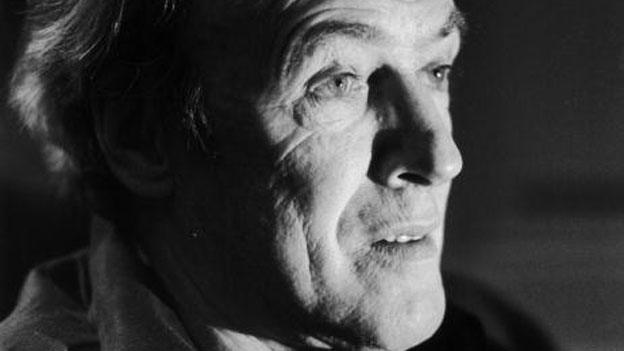Roald Dahl centenary to be 'biggest Cardiff arts event'
- Published
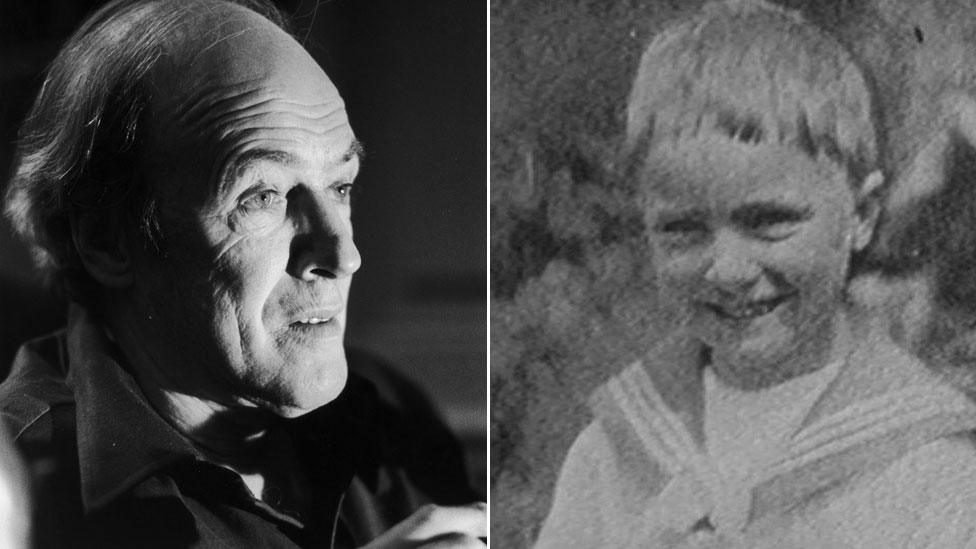
Roald Dahl 'felt a huge connection to Wales'
A century ago, one of the greatest ever storytellers was born in Llandaff, Cardiff.
Roald Dahl's books have been the bedrock of countless childhoods.
More than 200 million copies have been sold worldwide and translated into 59 languages.
The author's infamous characters, Willy Wonka, Miss Trunchbull and the Twits amongst them, will be affectionately remembered by children and adults alike across Wales.
Schools across the country are marking Roald Dahl Day by dressing up as their favourite villains and heroes, with an Enormous Crocodile bench to be unveiled in Cardiff Bay.
Though well known for his Norwegian and English connections, 2016 has seen a concerted effort to highlight the influence of Wales on the writer's colourful imagination.
Dahl spent nine years in Cardiff as a child; a period masterfully illustrated in his autobiography, Boy.
Back in 2009, a blue plaque was placed on a sweet shop, now a Chinese takeaway in Llandaff's High Street which was owned by Mrs Pratchett, a woman who was said to have influenced several of his characters.
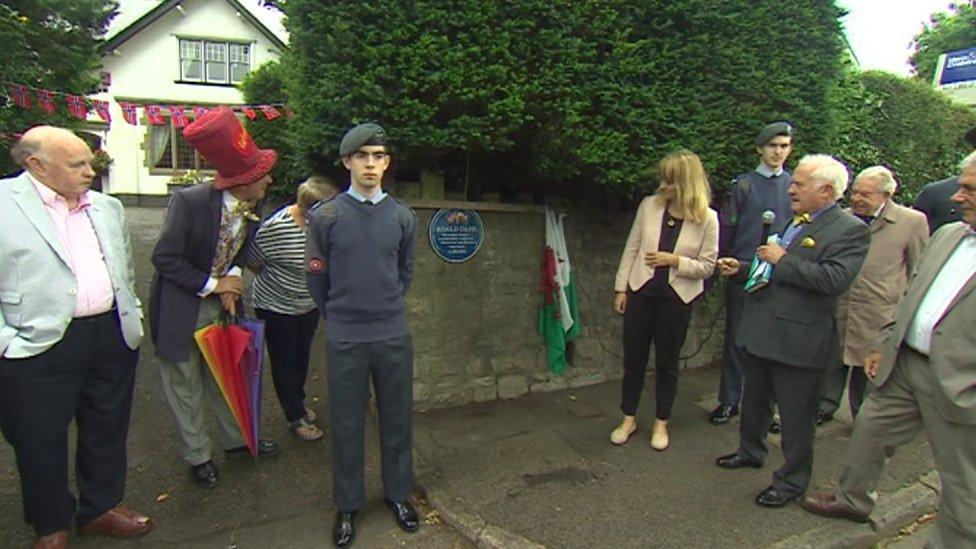
A plaque was unveiled at Villa Marie, Roald Dahl's birthplace on Monday
On Monday, additional blue plaques were unveiled around the village to mark more of his childhood haunts.

ROALD DAHL'S CARDIFF CONNECTIONS
Born during World War One on 13 September 1916 in Llandaff., external His Norwegian father, Harald, was a ship broker and he was named after polar explorer Roald Amundsen
The family moved to live in Radyr, in a house called Ty Mynydd, in 1918. His father died when he was three and the family moved back to Llandaff
He went to school in Llandaff until 1925, before being sent out of Wales to boarding school
A blue plaque now marks the former sweet shop in Llandaff, where Roald and his friends played a trick on the miserable owner Mrs Pratchett,, external by putting a mouse in a jar of gobstoppers
Despite travelling and living and working away from Wales, he always had a great love for his home city

Felicity Dahl tells the story of Roald's mouse prank, when he was a schoolboy in Llandaff
Those early years of Welsh influence might have had a more lasting effect on the author than initially appreciated.
Last month, a collection of essays was published under the title Wales of the Unexpected, considering the influence of Wales on the imagination of the famous writer.
One of the contributors was Dr Tomos Owen, a lecturer at the School of English Literature at Bangor University.
He said that, while the significance of Dahl's early period here in Wales "is a question for debate", nonetheless, it was part of his development and "it's worth thinking about Wales as one of the many lenses through which we can view his work."
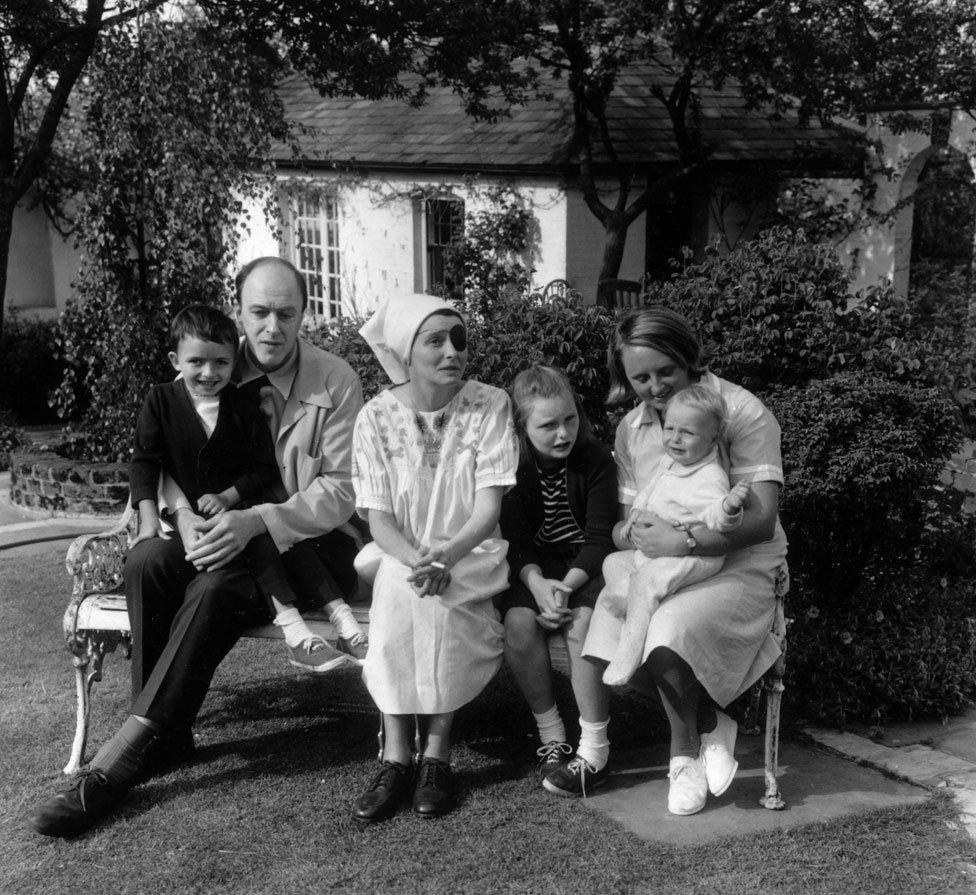
Roald Dahl with his young children in 1965
He added it is possible to see the "fingerprints of Wales" in Dahl's literature.
Donald Sturrock, Dahl's biographer, said he "was proud of being born in Cardiff" and "Wales and the hinterland of Cardiff had a big impact on him."
"When he actually was kicked out of Wales and sent to a boarding school in Bristol, I think it's very touching that he says he lined up his bed so that he would be facing home, facing where his house in Wales was across the Bristol Channel.
"In those very deep ways, I think Wales was enormously important to him. It was where he came from."
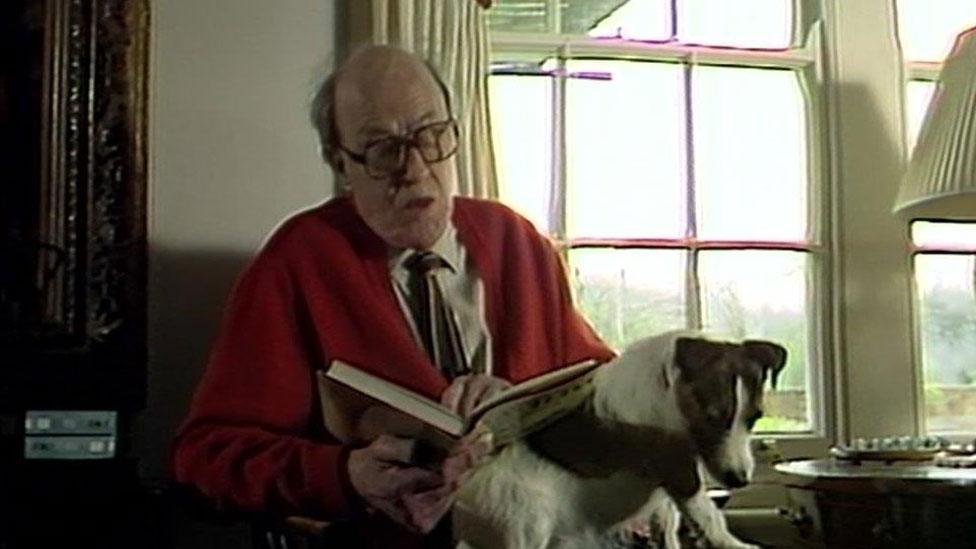
Roald Dahl died in 1990
Celebrations will continue this weekend in Cardiff, with the capital being transported into the "City of the Unexpected".
Organisers remain tight-lipped about the detailed arrangements, but they say it will be the biggest arts event ever to happen on the streets of Cardiff, with 6,000 performers taking part.
Twenty six years after his death, the magic and wonder of Roald Dahl's creations continue, particularly in his city and country of birth.
- Published4 January 2016
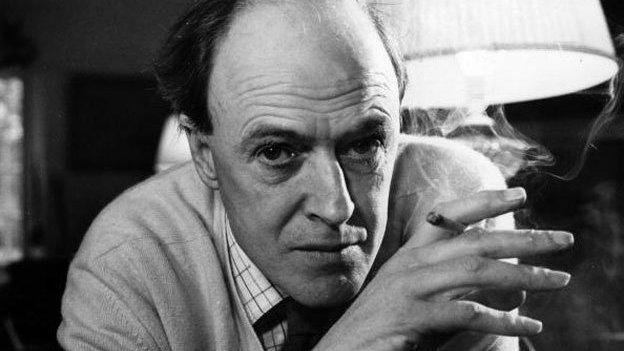
- Published16 July 2016
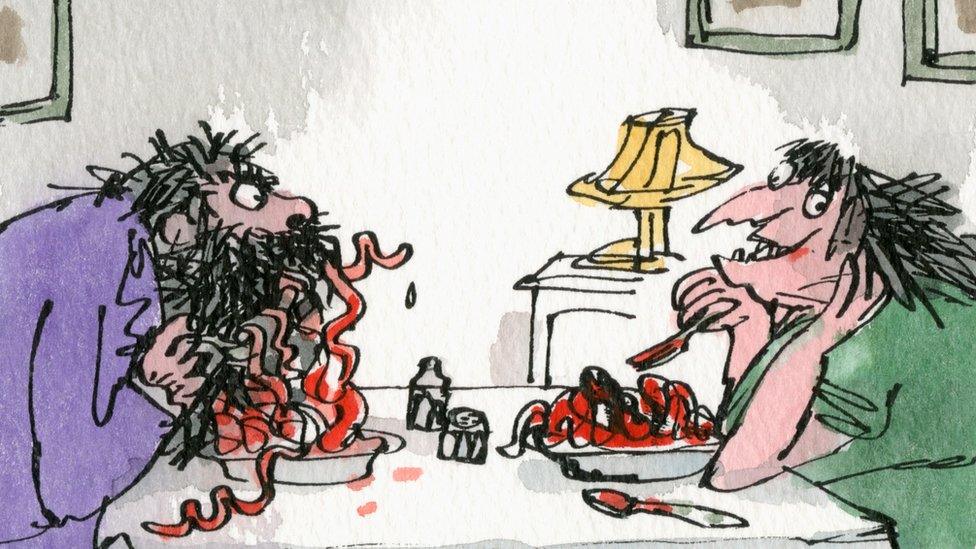
- Published28 April 2016
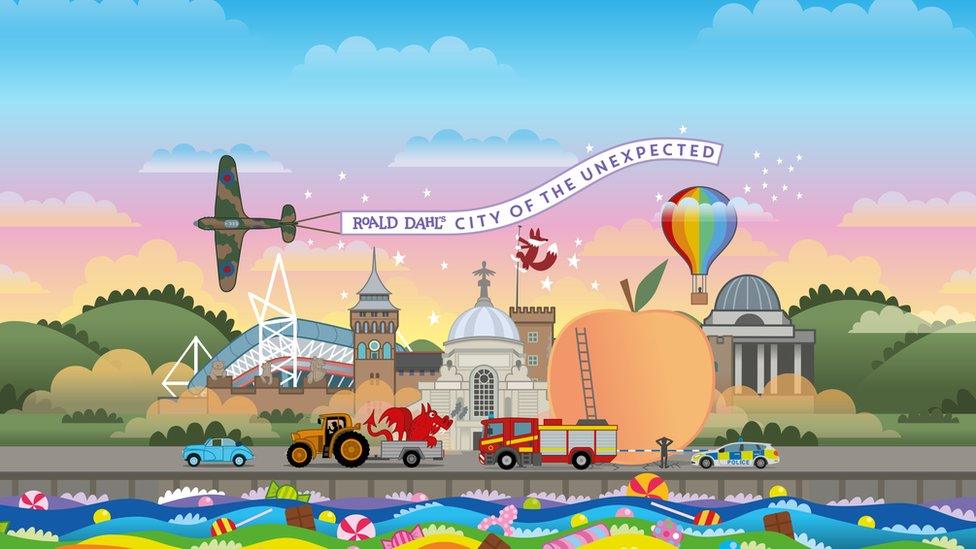
- Published12 August 2016
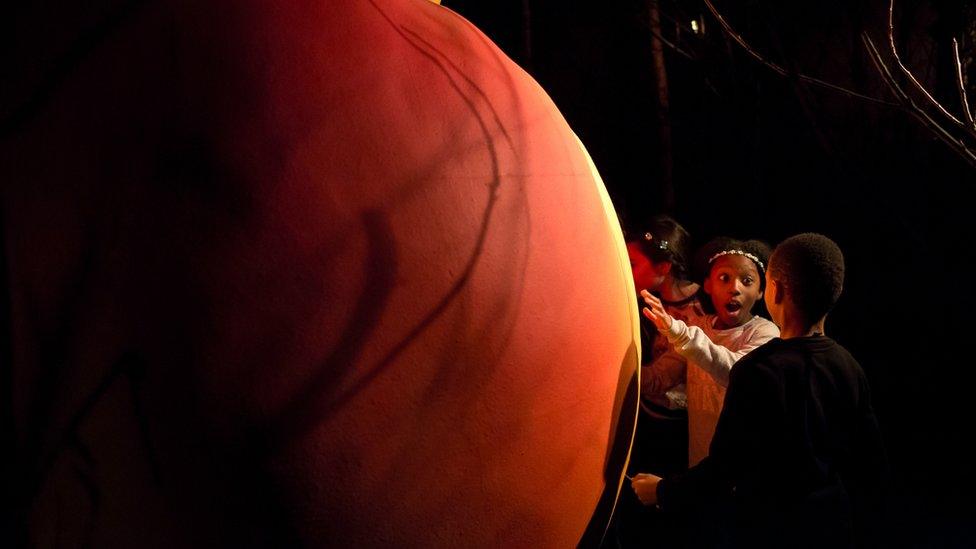
- Published16 June 2016
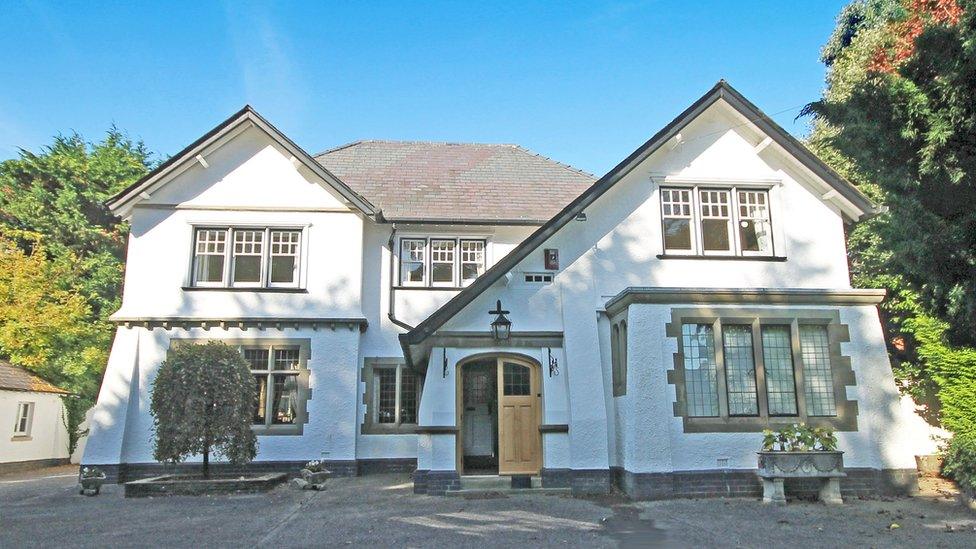
- Published6 July 2015
